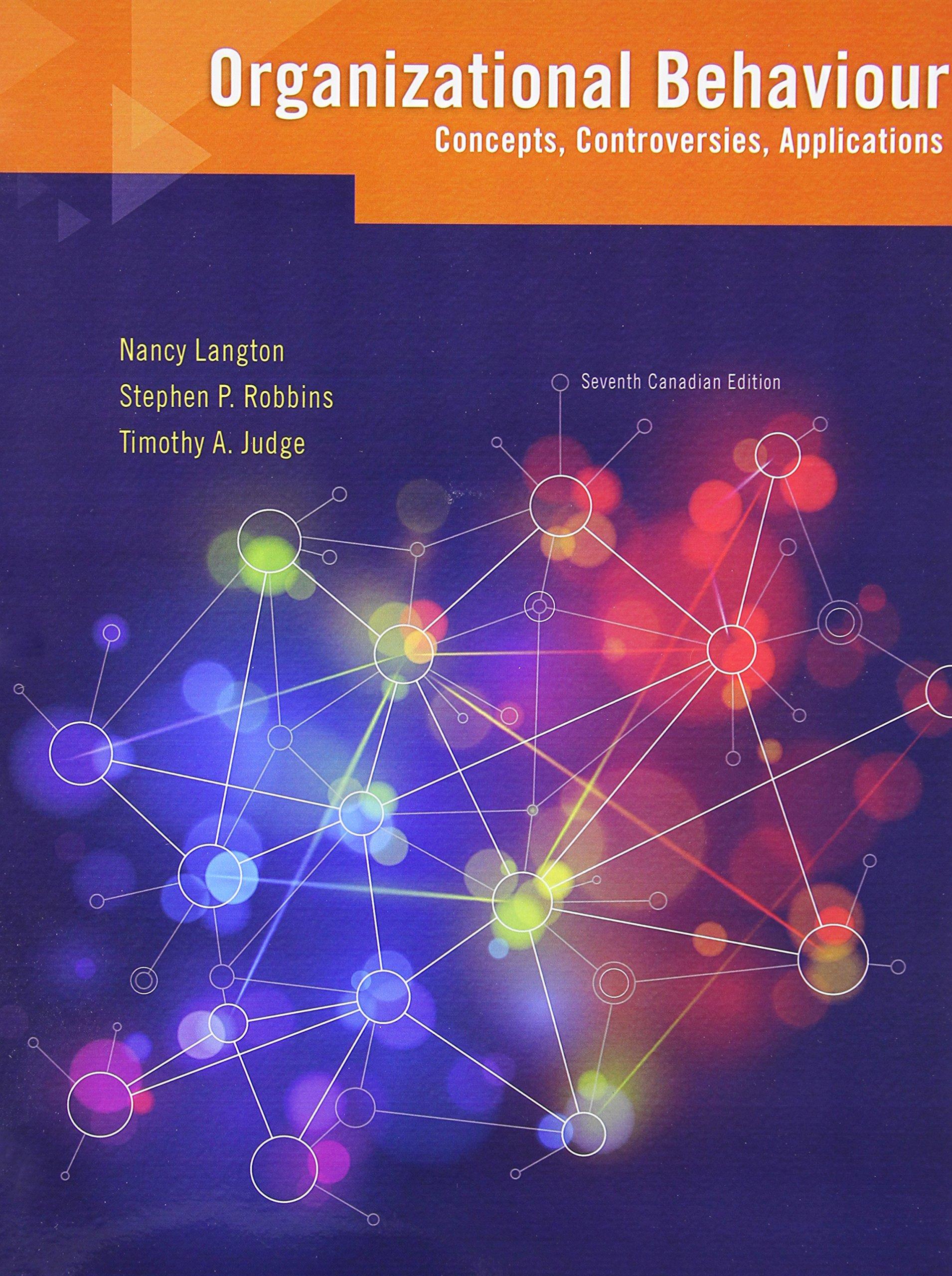Few topics in the business press grab headlines and ignite the public like the compensation packages received
Question:
Few topics in the business press grab headlines and ignite the public like the compensation packages received by top management, which continue to rise. CEOs in Canada’s 100 largest companies earned a median compensation of $5.6-million in 2013, a level of compensation just under that received before the economic downturn.
How do compensation committees set executive compensation? In many cases, it comes down to equity theory and depends on the referent others to which the CEO is compared. To determine a “fair” level of pay for a given CEO, members of a compensation board find out how much CEOs with similar levels of experience in similar firms (similar inputs) are being paid and attempt to adjust compensation (outcomes) to be similar. So, CEOs in large tech firms are paid similarly to CEOs in other large tech firms, CEOs in small marketing companies are paid similarly to CEOs in other small marketing companies, and so forth. Proponents of this practice consider it to be “fair” because it achieves equity.
However, critics of high CEO pay want to change the perspective by comparing the CEO’s pay to the pay of the average employee. For example, Canada’s 100 highest paid CEOs are paid 171 times more than the average employee. From this perspective, CEO pay is grossly inequitable and thus “unfair.”
In response, many CEOs, such as Mark Zuckerberg of Facebook and Larry Page of Google, have taken $1 annual salaries, though they still earn substantial compensation by exercising their stock options. In addition, shareholders of some companies, such as Verizon, are playing a greater role in setting CEO compensation by reducing awards when the company underperforms.
Questions
1. How does the executive compensation issue relate to equity theory? Who do you think should be the comparative others in these equity judgments? How should we determine what is a “fair” level of pay for top executives?
2. Can you think of procedural justice implications related to the ways pay policies for top executives have been instituted? Do these pay-making decisions follow the procedural justice principles outlined in the chapter?
Step by Step Answer:

Organizational Behaviour Concepts Controversies Applications
ISBN: 9780134048901
7th Canadian Edition
Authors: Nancy Langton, Stephen P. Robbins, Timothy A. Judge





